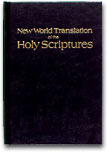As far as others standing alongside me, no, I don’t view it that way; least I be accused of forming a sect of some sort. However, e-watchman.com does appear to have become an informal rallying point around which a few “late bloomers” have gathered. My essays seem to resonant more with some, since we have a shared experience. And I suppose, if anything, I have articulated that experience for others. (The more apt description, instead of “late bloomers, is “11th hour hires.” See essay: “Many that are First Will be Last”)
The second appointment over all the master’s “belongings” has reference to their being appointed as kings over all the earth. How do we know? Please note that Jesus followed up the parable of the faithful and discreet slave and the evil slave with two other illustrations regarding two classes of faithful and unfaithful servants. In the illustration of the faithful and sluggish slaves who are entrusted with their master’s money, Jesus also referred to an appointment, saying: “You were faithful over a few things. I will appoint you over many things. Enter into the joy of your master.”
Entering “into the joy of your master” relates to Christ’s anointed followers receiving their heavenly reward – of entering the kingdom of the heavens. That being the case, being appointed “over many things” must relate to their sharing in ruling over the earth during the reign of Christ’s kingdom. So, in that respect all of Jesus’ earthly “belongings,” over which the faithful slave and discreet slave is to be appointed, would appear to be not only the living who are destined to survive the great tribulation and live on the earth, but also the dead, who also belong to Jesus by virtue of the fact that his sacrificial death purchased all of mankind.


